Uncategorized
Christian, Muslim Pilgrim Welfare Boards, several other agencies to be scrapped as Tinubu orders full implementation of Oronsaye Report

Following the order given by President Bola Tinubu for the full implementation of the Oronsaye report, the federal government has announced the merging, subsuming, scrapping, and relocation of several agencies.
It would be recalled that in 2011, President Goodluck Jonathan established the Presidential Committee on Restructuring and Rationalisation of Federal Government Parastatals, Commissions, and Agencies, with former head if the civil service of the federation, Steve Oronsaye as the Chairman.
Submitted in 2012, the 800-page Oronsaye report highlighted the existence of 541 Federal Government parastatals, commissions, and agencies, both statutory and non-statutory.
It recommended the reduction of statutory agencies from 263 to 161, scrapping 38 agencies, merging 52, and reverting 14 to departments in different ministries.
Below is a list of some of the agencies that may be scrapped if the Oronsaye report is fully implemented as ordered by President Tinubu:
The Code of Conduct Bureau, Economic and Financial Crimes Commission, and Independent Corrupt Practices and other Related Offences Commission are to be merged into a single agency.
The report recommended the elimination of the Fiscal Responsibility Commission and the National Salaries, Income and Wages Commission, with their responsibilities being incorporated into the Revenue Mobilisation, Allocation and Fiscal Commission.
The Salaries and Wages Income Commission is likely to face a similar fate..
38 Federal Agencies were recommended for abolition, including the Public Complaints Commission, National Poverty Eradication Programme, Utilities Charges Commission, National Agency for the Control of HIV/AIDS, National Intelligence Committee, and more.
National Agency for the Control of HIV/AIDS be merged as a Department under the Centre for Disease Control in the Federal Ministry of Health.
The merger of National Emergency Management and the National Commission for Refugees, Migrants, and Internally Displaced Persons.
The Directorate of Technical Cooperation in Africa be abolished and its functions, along with those of the Technical Aids Corps, transferred to an appropriate Department in the Ministry of Foreign Affairs.
Infrastructure Concessionary and Regulatory Commission be subsumed in the Bureau of Public Enterprises for greater synergy and their enabling laws amended accordingly.
It was suggested that the Nigerian Airspace Management Agency, Nigerian Civil Aviation Authority, and the Nigerian Metrological Agency should be combined into a new entity called the Federal Civil Aviation Authority, with their laws adjusted to accommodate the merger.
The committee suggested merging the Nigerian Investment Promotion Council with the Nigerian Export Promotion Council to enhance resource management and utilisation.
The committee suggested repealing the enabling law of the National Commission for Nomadic Education and transferring the Commission’s activities to the Universal Basic Education Commission.
The National Council of Arts and Culture will combine with the National Theatre and the National Troupe to form a single organisation
The National Agency for Science and Engineering Infrastructure be merged with National Centre for Agricultural Mechanization and Project Development Institute
The committee suggested that the National Hajj Commission of Nigeria and the Nigerian Christian Pilgrims Commission be abolished, with the government focusing solely on offering consular services and vaccinations to prospective pilgrims.
The Nigerian Communications Commission, the Nigerian Broadcasting Commission and the regulatory functions of the Nigerian Postal Services were recommended by the committee to be merged.
The National Information Technology Development Agency to be fused into the Ministry of Communication Technology
Nigerian Television Authority, Federal Radio Corporation of Nigeria & Voice of Nigeria into the Federal Broadcasting Corporation of Nigeria.
The Nigerian Army University to be merged with the Nigerian Defence Academy; to function as a faculty with the the Nigerian Defence Academy.
Air Force institute of Technology also to function as faculty within Nigerian Defence Academy.
Debt Management Office to become an extra-ministerial department in the Federal Ministry of Finance
Public Health Department to return to the Federal Ministry of Health
One important recommendation from the committee was to stop providing government funding to professional bodies and councils. Therefore, it is necessary to revise the Professional Bodies (Special Provisions) Act of 1972, which requires the government to offer financial assistance to these organisations.
The list comprises various professional councils and boards in Nigeria, such as the Teachers Registration Council of Nigeria, Computer Professionals Council of Nigeria, Advertising Practitioners Council of Nigeria, Nigeria Press Council, Architects Registration Council, Council for Registered Engineers of Nigeria, Estate Surveyors’ Registration Board, Town Planners Council, Nigerian Builders Council, Quantity Surveyors’ Registration Board of Nigeria, and Council of Nigerian Mining Engineers and Geoscientists.
News
Keyamo becomes Honorary Fellow, Nigerian Institute of Architects
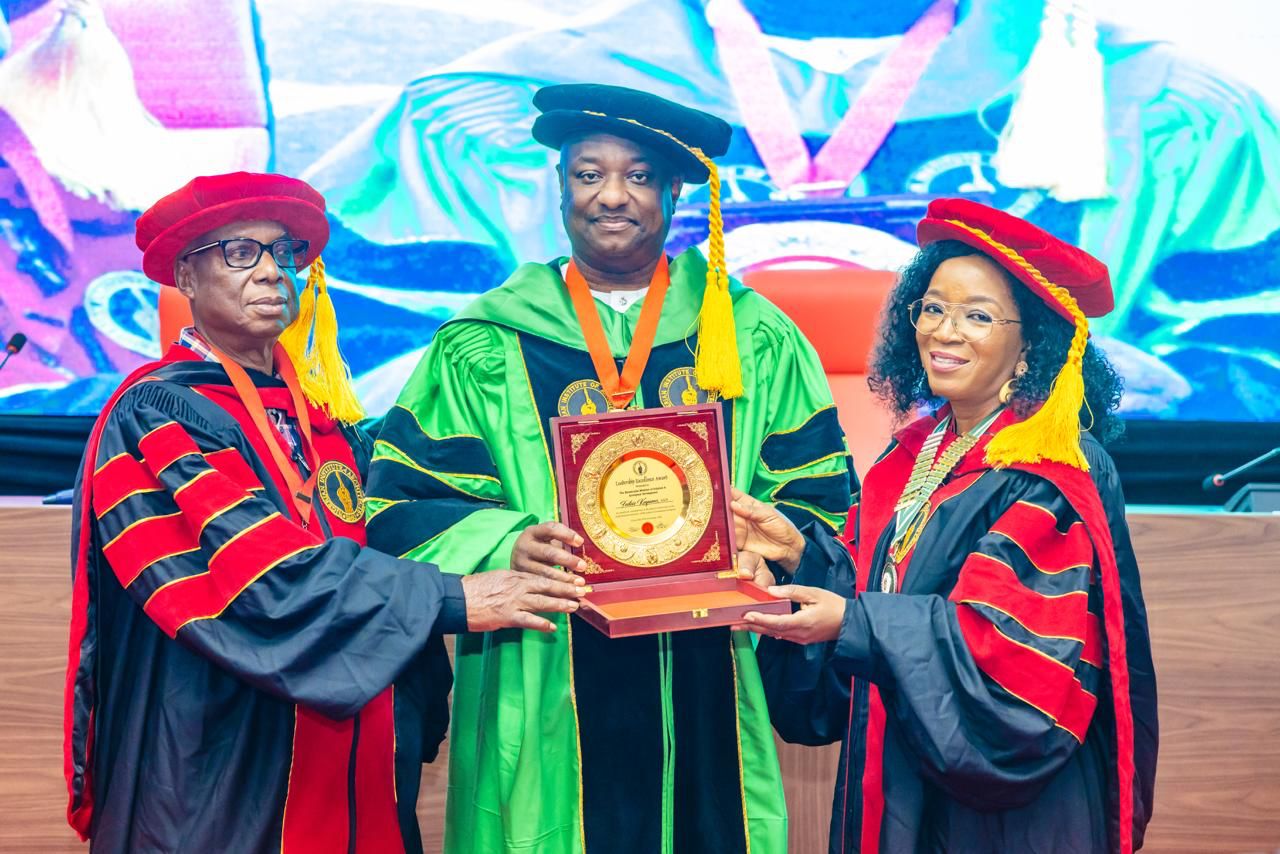
By Bonaventure Phillips Melah
Festus Keyamo, SAN, Nigeria’s Minister of Aviation and Aerospace Development, has been formally inducted into the revered league of Honorary Fellows of the Nigerian Institute of Architects (NIA)—a distinguished circle that has, over the past six decades, admitted only a select group of eminent Nigerians.
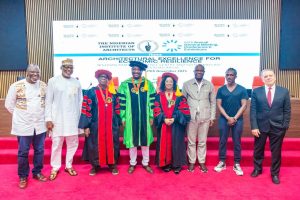
The prestigious honour, conferred by the Institute, places the Aviation Minister among an elite class that includes former Presidents; Chief Olusegun Aremu Obasanjo and Dr. Goodluck Ebele Jonathan, the Speaker of the House of Representatives, and the Governor of Niger State, among other national figures recognised for their exceptional contributions to nation-building. With this induction, Keyamo becomes only the 16th Honorary Fellow in the 60-year history of the NIA.
In a citation, the Nigerian Institute of Architects described Keyamo’s induction as a testament to his national impact, visionary leadership, and enduring commitment to infrastructural excellence.
In his remarks at the conferment ceremony, the Dean of the College of Fellows, who represented the NIA President, emphasised that the Honorary Fellowship is reserved strictly for individuals who have demonstrated uncommon excellence, service, and achievement. He praised Keyamo for his transformative role in modernising Nigeria’s aviation landscape—an achievement that has significantly enhanced the architectural and infrastructural fabric of the sector.
He noted that the Minister’s visionary leadership has catalysed the renewal of airport infrastructure, promoted world-class design standards, and strengthened the interface between aviation development and national architecture.
“His efforts in repositioning the aviation industry reflect a deep understanding of functional design, structural aesthetics, and sustainable infrastructure—principles that lie at the heart of architecture,” the Dean said.
In his acceptance speech, the Honourable Minister expressed profound gratitude to the Institute for the rare honour, describing it as both humbling and inspiring. He highlighted the importance of cultural identity in national development, stressing that architecture and urban planning must reflect the soul of the people.
“In our urban development, we must integrate our culture into our town planning,” he stated. “Our spaces must tell our stories. Our buildings must reflect who we are. This is the essence of nationhood, and it is a philosophy I intend to continually champion, especially as we reimagine Nigeria’s aviation ecosystem.”
A statement by Tunde Moshood,
Special Adviser On Media and Communications to the Honourable Minister of Aviation and Aerospace Development, had it that Keyamo reaffirmed the Ministry’s commitment to developing aviation infrastructure that embodies innovation, resilience, and cultural relevance while supporting Nigeria’s broader economic transformation.
Uncategorized
Russia passes law

News
Why we honoured Prof. Anosike, NiMet DG- NANS
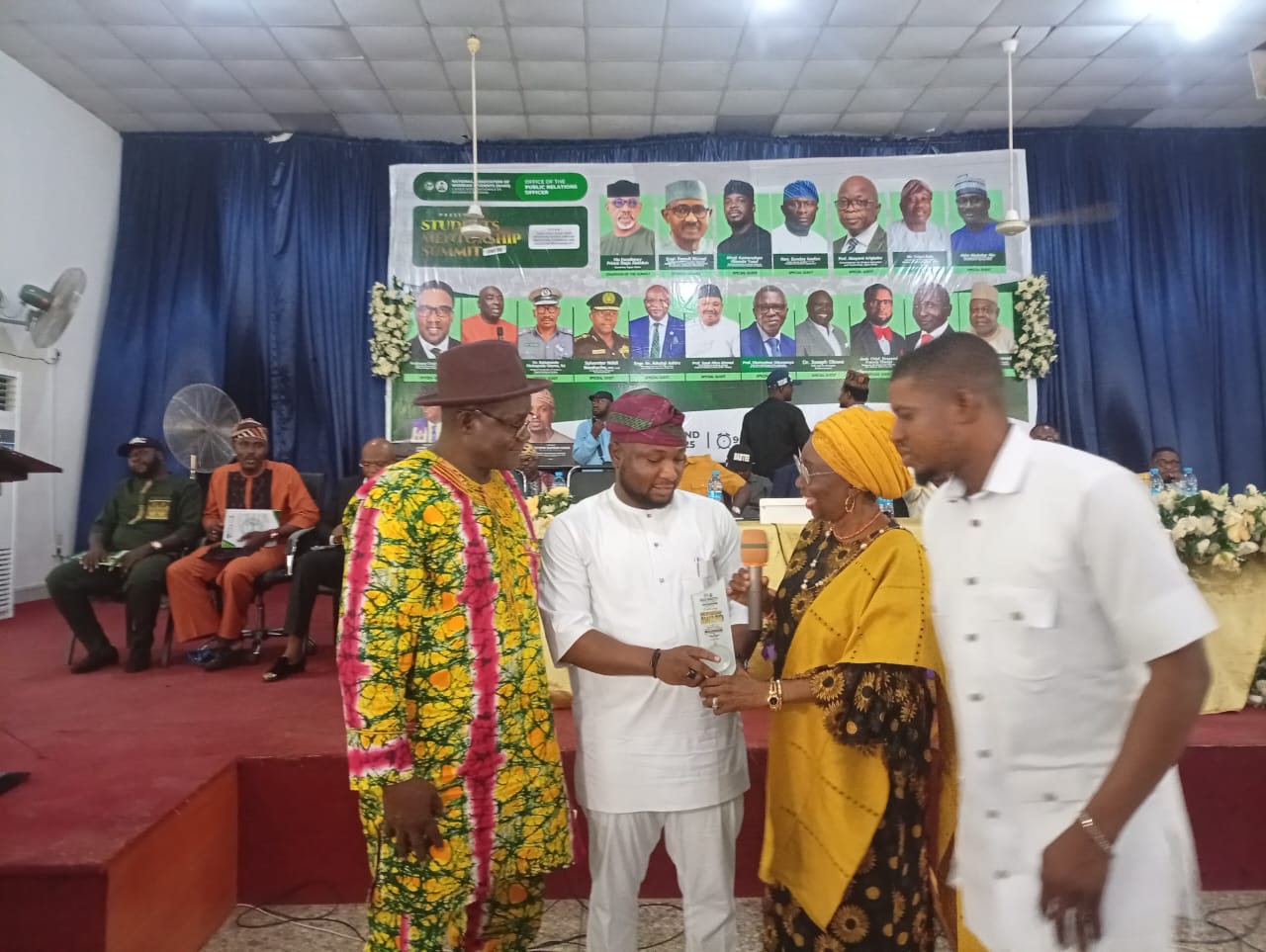
The National Association of Nigerian Students (NANS) has explained why it recently honoured the Director General/CEO, of the Nigerian Metrological Agency (NiMet), Prof. Charles Anosike with its Mentorship Award of Excellence.
Anosike was given the award on October 23rd at the Olabisi Onabanjo University Ago Iwoyin, Ogun State during a youth mentorship conference organized by NANS.
In a statement issued Monday, October 28, 2025, NANS said the NiMet DG was honoured for consistently demonstrating exemplary leadership, humility, and generational impact in his service to Nigeria’s youth and emerging entrepreneurs.
Titled ‘Statement by the National Association of Nigerian Students (NANS) on the Presentation of Mentorship Award to the Director General of NiMet,’ it stated that the mentorship Anosike has provided to thousands of young Nigerians has paved the way for fresh ideas, empowered individuals, and anchored many on the path of excellence.
According to the statement which was signed by Comrade Adeyemi Samson, NANS National Public Relations Officer- “Young people who have had the privilege of working with him testify to his clear-sighted guidance, rare simplicity of approach, and genuine concern for their personal and professional development. His readiness to extend a helping hand, provide encouragement, and share insights has made a lasting difference.
“In his capacity as a distinguished professor, a man of dignity and repute, and a public servant committed to transformation, Professor Anosike embodies the very essence of mentorship that NANS strives to promote among Nigerian students and youths.
“By this award, NANS affirms its deep respect for Professor Anosike’s consistent efforts in nation-building, youth capacity development, and entrepreneurship support. We are delighted to honor him today and look forward to the many further achievements that will follow from his mentorship and service.
-

 News2 years ago
News2 years agoBreaking: Tinubu’s authentic ministerial nominees
-

 News9 months ago
News9 months agoSenate to speed up conclusion of Nigeria Forest Security Service Bill
-
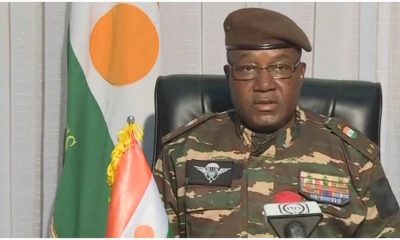
 News2 years ago
News2 years ago“Anytime we want to kill terrorists, President would ask us to take permission from France but they were killing our soldiers-” Niger Republic coup leader
-
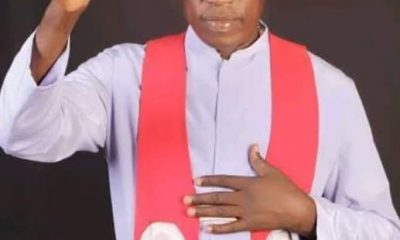
 News2 years ago
News2 years ago“I’m leaving the Catholic church because Bishop Onah is oppressing me,” says Okunerere
-

 News2 years ago
News2 years agoRadio Nigeria’s veteran broadcaster Kelvin Ugwu dies three months after retirement from service
-
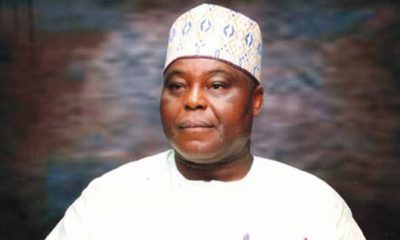
 News2 years ago
News2 years agoDokpesi and the Gazebo Mystique
-

 News2 years ago
News2 years agoTsunami: Tinubu orders dissolution of managements, boards of MDAs, to sack all Buhari’s political appointees
-

 News2 years ago
News2 years agoPersons against Allagoa’s reforms behind protests at NSITF
